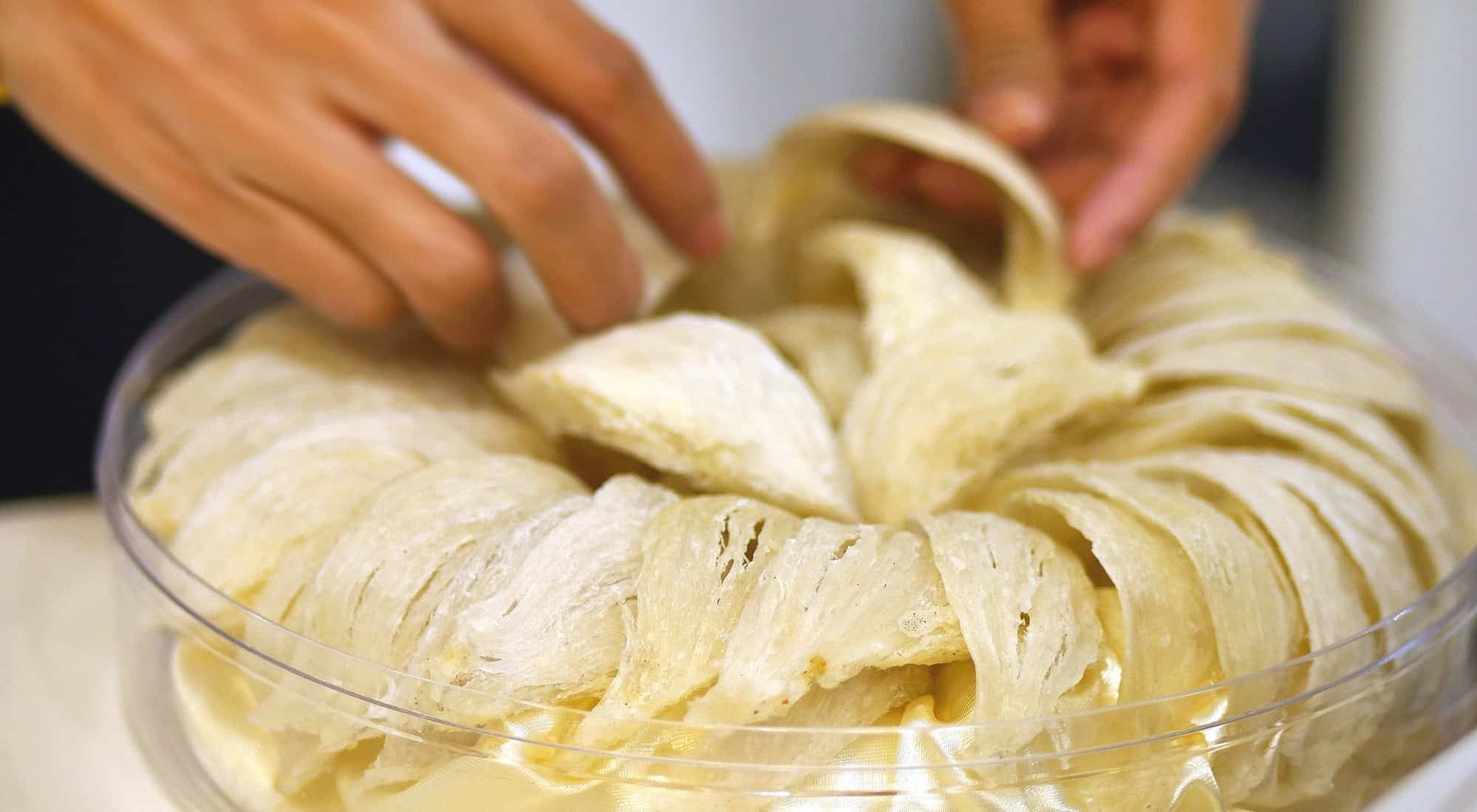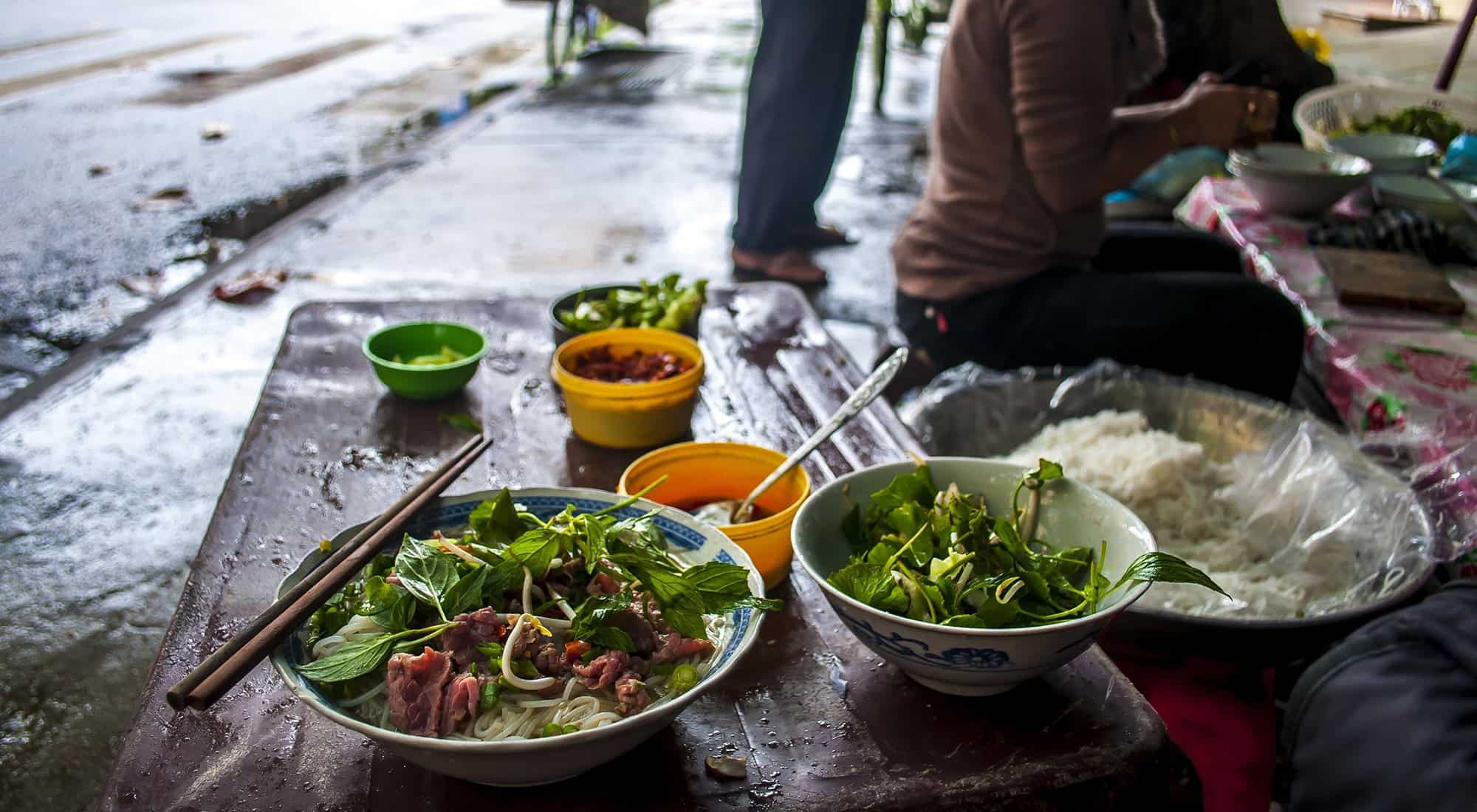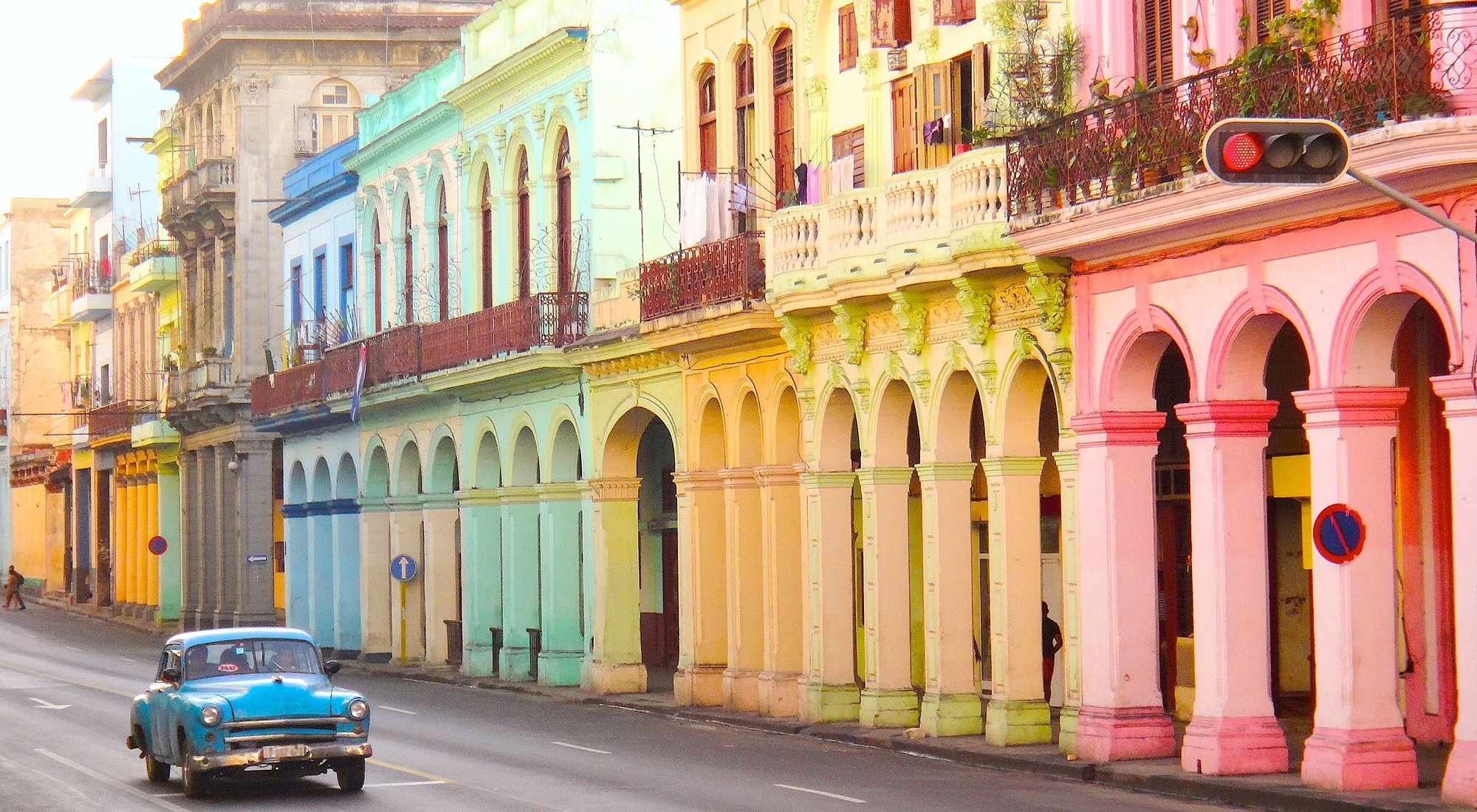The tiny nests of the brown-rumped swift (Collocalia esculenta), also known as the edible-nest swiftlet or sea swallow, are collected for bird’s nest soup, a Chinese delicacy, throughout Southeast Asia.
The semi-oval nests are made of silk-like strands of saliva secreted by the birds which, when cooked in broth, softens and becomes a little like noodles. Like so many Chinese delicacies, the nests are believed to have aphrodisiac qualities and the soup has even been suggested as a cure for HIV. The red nests are the most highly valued, and the Vietnamese Emperor Minh Mang (1820-1840) is said to have owed his extraordinary vitality to his inordinate consumption of bird’s nest soup. This may explain why restaurants serving it are sometimes associated with massage parlours.
Collecting the nests is a precarious but profitable business and in some areas mafias of concessionaires vigorously guard and protect their assets. The men who collect the nests on a piecework basis risk serious injury climbing rickety ladders to cave roofs in sometimes almost total darkness, save for a candle strapped to their heads.










